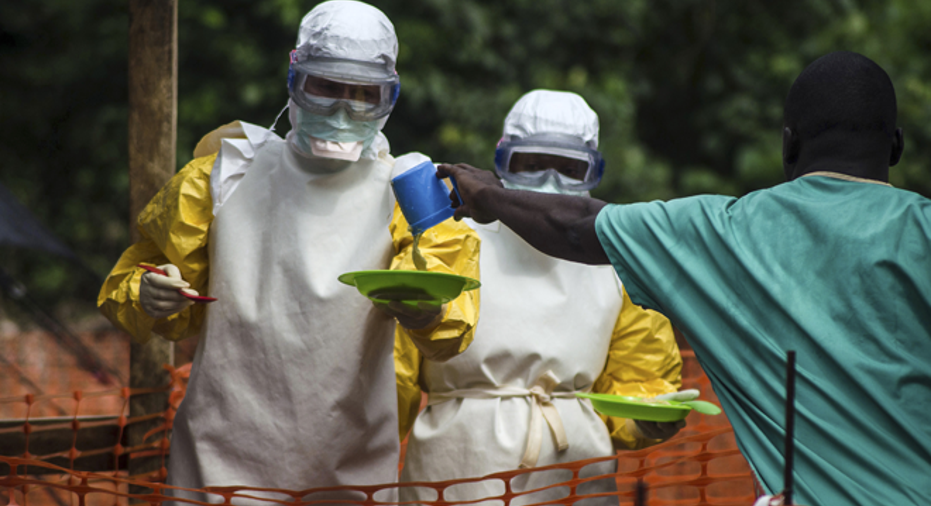Save Your Money. You’re Not Going to Catch Ebola

Wearing a protective suit or mask, donning rubber gloves and carrying around a respirator may seem like smart ways to protect against Ebola but saving your money will always be the better option.
There’s no doubt Ebola fear is spreading like wildfire, prompting many to stock up on so-called protective gear. But unless you are in close contact with an Ebola victim your chances of contracting the deadly virus are slim.
“There’s nothing you need to do to stay safe from Ebola,” says Michael Smith, chief medical editor at WebMD. “There are certainly things you need to do to stay safe from infections that kill far more people, like the flu.”
Ebola fighting products a waste of money
Ever since the Ebola outbreak in West Africa started all sorts of companies have been selling survival kits and Ebola protection and prevention devices. A quick Internet search will yield you a slew of vendors to choose from. While purchasing one of these kits may give you false peace of mind, experts say you are much better off investing in a good antibacterial hand soap and/or gel.
“All these remedies, all these masks, they are not warranted,” says Robert Glatter, attending physician, Dept. of Emergency Medicine at Lenox Hill Hospital. “The flu is much more transmissible. Thirty-six thousand people die every year from the flu.”
Earlier this month the Federal Trade Commission or FTC sent out a release alerting the public to be aware of companies trying to hawk remedies and protections from Ebola. According to the FTC there are no FDA approved vaccines or drugs for Ebola, nor can any dietary supplements prevent or cure this infectious disease. In late September the FDA sent warning letters to three companies who claimed to sell Ebola remedies online.
According to Smith, any product on the market that is targeted specifically at getting rid of or protecting you from Ebola is a waste of money. He says the steps you take to protect yourself from the flu is all you can do when it comes to Ebola.
Misinformation spreading fast
Not only is fear spreading about a potential outbreak, so is misinformation. Despite the fact that the Centers for Disease Control or CDC has repeatedly said Ebola is only transmittable through direct contract with the blood or bodily fluids of an infected person who is exhibiting symptoms and not through the air, countless people believe otherwise. “People seem to be questioning the advisements coming out,” says Smith. “A lot of bloggers can get out there and raise whatever hysteria they want.”
According to Glatter, it’s ok to travel on airplanes, take subways or buses because it’s not an airborne disease. What’s more, experts say you can’t catch it unless the person is exhibiting symptoms and there’s an exchange of bodily fluids. “Catching Ebola takes many factors coming together,” says Glatter. “People shouldn’t panic mainly because the odds of getting Ebola from a commute whether an airplane or bus is very small.”
Indeed of the people who were in confinement for 21 days after coming into contact with Thomas Eric Duncan, the only person to die of Ebola on U.S. soil, all were freed as of Sunday night symptom free.
Best Defense is washing your hands
So if the products won’t keep you safe what’s the best defense? Experts say staying calm, washing your hands often, and going about your day as you normally would. That’s the best way to get through this current drummed-up panic. Keeping in mind that there is not an outbreak in the U.S. will help you keep it in perspective.
“The most important thing that the general public should do is the same things we recommend to avoid the flu or a cold in the winter-- continued focus on personal hygiene, such as always using hand sanitation products, washing hands, and using disposable materials such as tissues,” says Douglas McConnell, chief medical officer at OBP Medical, the medical device maker. “As a healthcare provider on the front lines of care, these are some of the same tactics that we are using to prevent cross-contamination of this or any viral ailment.”



















